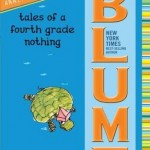 I am so incredibly tired of talking about the Halestrom. Linda, honey, listen. She’s going to prosper. As are all the BBA’s currently throwing their weight around. The reason there will be no economic backlash for them is tied to a class system far bigger than the book blogger world. At the heart of every BBA is the same core complaint – how dare they speak that way to us? The us and the they changes, but the power disparity remains. It can be a tone argument (She said “Fuck this” about an unpleasant book!”) it can be a gatekeeping argument (“You’re jealous but Roger Ebert was my tech support!”) it can be blatant emotional manipulation (“My babies need to eat, and my book baby is the only way that can happen. Why are you killing my babies?”) but the basic message is the same. The reader is the serf in the economic structure of publishing. Shut up and get back to work.
I am so incredibly tired of talking about the Halestrom. Linda, honey, listen. She’s going to prosper. As are all the BBA’s currently throwing their weight around. The reason there will be no economic backlash for them is tied to a class system far bigger than the book blogger world. At the heart of every BBA is the same core complaint – how dare they speak that way to us? The us and the they changes, but the power disparity remains. It can be a tone argument (She said “Fuck this” about an unpleasant book!”) it can be a gatekeeping argument (“You’re jealous but Roger Ebert was my tech support!”) it can be blatant emotional manipulation (“My babies need to eat, and my book baby is the only way that can happen. Why are you killing my babies?”) but the basic message is the same. The reader is the serf in the economic structure of publishing. Shut up and get back to work.
Enter the internet. In the same way a child grows past the ability of a parent to control, so has the book blogging community. For a moment, it looked like GoodReads was the future but they (for economic reasons, not philosophical ones) reverted to the familiar power structures. Reader reviewers retreated to their blogs but refused to regress. (Wow, that was a lot of R’s.) A number of my fellow readers seem mystified that anyone can support the Halestrom. What’s not to understand? She has class, color and educational privileges. These are the straws Howard was grasping at in her attempted takedown of Amazon Vine’s review system. People who were not qualified to have opinions were voicing them. If every reader is allowed to speak their mind, how will we know when a worthy opinion is being presented?
See the heart of that argument? You’re not worth listening to. Although Howard has no idea who is in the Vine system (She’d be surprised, I promise you.) She feels certain that if they were of the Reviewing Class they’d know they shouldn’t be speaking dismissively of her work. Because Howard was born with certain privileges she’s unaware that she can’t grant those same privileges to her book. The game has changed. The game will continue to change. The BBA’s are going to get louder before it’s done. There’s nothing unique to the book world in the desire of the upper class to stifle the voices of the lower. This is why I’ve always loved the Romance genre and it’s un-respected cousins. With respect comes an upper class. The democratization of women’s voices is lost. It’s transmuted into a new hierarchy, a new structure designed to elevate the voices of some. Look, I’ve got no problem with education for it’s own sake (some of my best friends are Rhodes Scholars). However, when we close a book, we are all equal. If you’ve studied the genre you may have a unique perspective but you are not (I am not) inherently more worthy than the other readers. It is the merit of the argument, not the merit of the presenter that should prevail.
When Romance begs to be respected, what do they offer but the cards of respectability? “We’re college educated!” Well, I’m not. Am I not a good flag bearer for the genre? Should my reading choices not be valued? Is my dollar less bankable? “More than half of us are in relationships!” What does that have to do with anything? Are we diminished if not coupled with another? Will the merit of our argument rise with sexual activity? (Does the promiscuous YA teen reviewer hold more worth than the studious one? I’m just trying to grasp the metric here.) “We’re of higher than average incomes!” This box I can check. But if I were a publisher I’d value the voices of those with less income more. If I can afford to buy any book I wish, however often I wish, that’s great. It also means I have options. There’s no need for me to be loyal. Category Romance built a business on the working class woman budgeting her book expenses and dedicating them to a subscription model.
They valued her voice because she was committing disposable income she had to carefully consider before spending. There was a model of trust that led to in-book surveys and a willingness to listen not as easily found in other genres. Romance told her she was good enough as she was and publishing reinforced it. It’s no accident that this democracy of opinion, born out of the genre’s lack of respectability, caused genre readers to be vocal about their opinions. It makes me sad now to see women enter the conversations about these books with apologies. I don’t want them to feel unqualified or in some way inferior. Their merit is not in their economic, marital, social or educational standing. Their merit is inside themselves, in their words and their hearts and their emotional response to a piece of art.
When we reinforce the laws of class by running after respectability we lay the groundwork for future Halestroms. When you make an uneasy compromise with GoodReads because it offers you some of what you want while taking away what you need, you make your own bargain. That’s fine. You can work for colleges to study the genre, you can beg for magazines to cover it, you can do whatever makes you feel like you’re following your path. That’s not my path.
My path is to sit in a room full of women who read because they love the stories and ask them who they are and what they think. My path is to take the core message of romance, that we all deserve happy endings, and live it in my daily life. I don’t want to see your academic or social qualifications. They don’t matter to me. You do. Because you are enough, as you are, without any external validation. You spent the most precious commodity any of us have, our limited time in this life, on experiencing a piece of art. I want to know how it made you feel. The rest of it, the social structures and economic engines, none of it matters to me. Let the Halestroms rage around us because what’s important is bigger than the gatekeepers. What’s important is you discovering your voice and using it to speak without apology. If you’re wrong, it’s ok. Be wrong. Lord knows enough of the BBA’s are and they’ve done just fine in the world.
This post originally appeared at Love In The Margins.

